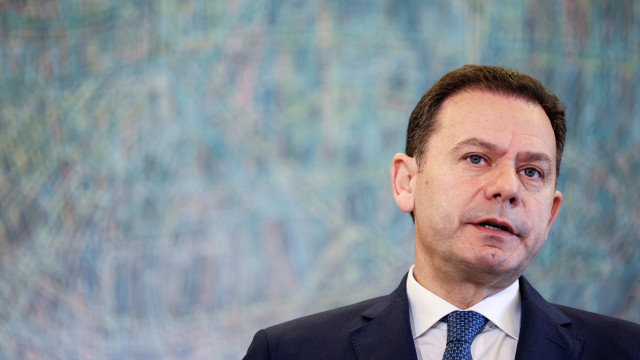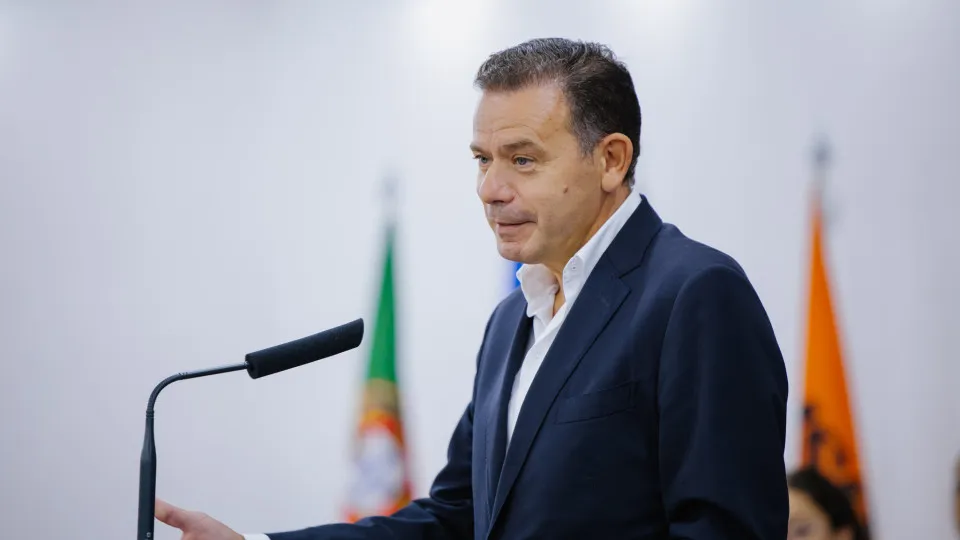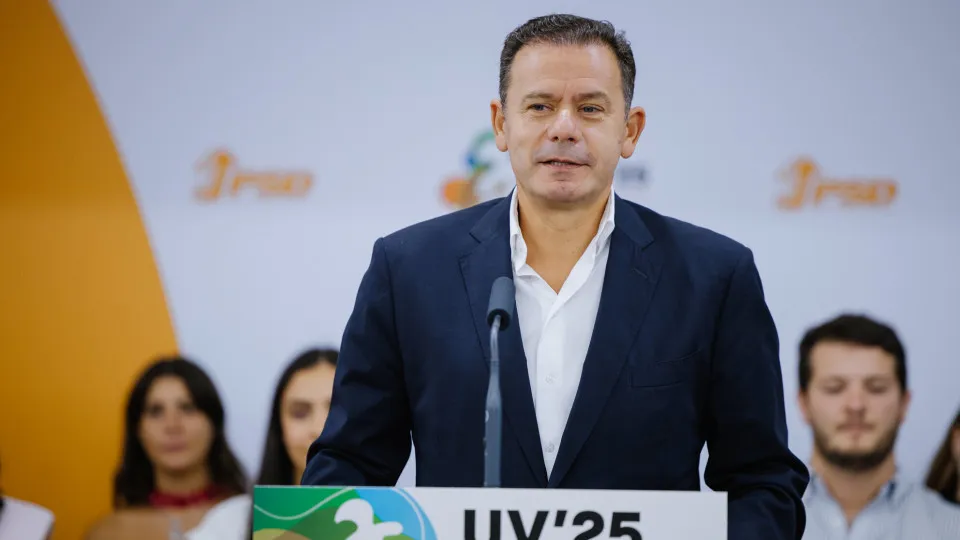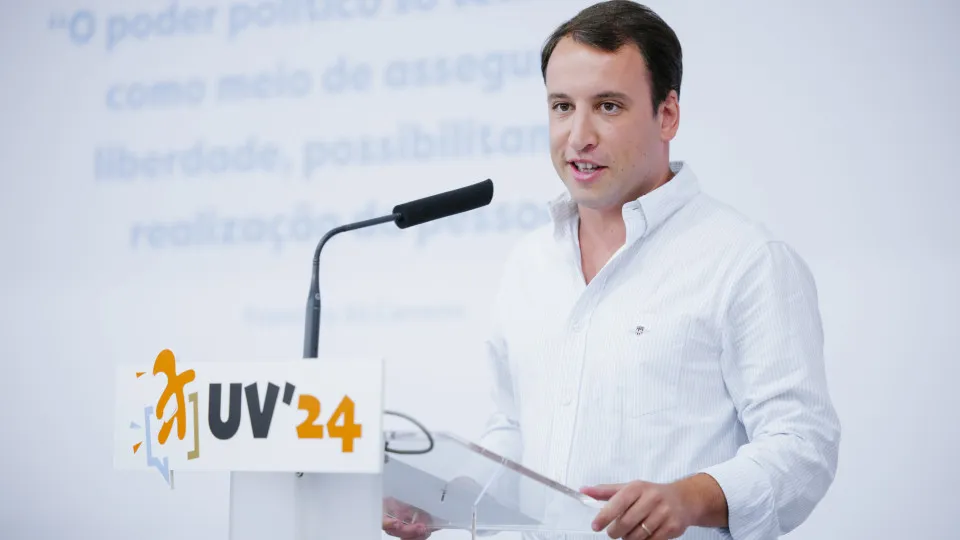Near the beginning of June, fado singer Lina released the single ‘Arde Sem Se Ver’, part of her new album, ‘Terra Mãe’. As the month draws to a close, more updates have emerged. The artist has announced this new project, released this Friday, June 27, by Atlantic Curve – Schubert Music Europe.
The album will be presented at FNAC do Chiado at 6:30 PM on June 27, at FNAC do Colombo at 5 PM on June 28, and at FNAC do Norte Shopping at 5 PM on June 29.
The record features nine tracks: ‘Arde Sem Se Ver’; ‘Não Deixei de Ser Quem Sou’; ‘Terra Mãe’; ‘Entre o Ser e o Estar’; ‘Milagres’; ‘Réquiem’; ‘A Flor da Romã’; ‘Falcão na Corda Bamba’; and ‘When are they coming’. This work is a collaboration with Irish composer Jules Maxwell (composer and keyboardist for Dead Can Dance) and follows the album ‘Burn’, by Lisa Gerrard and Jules Maxwell, released in 2021.
Lina is not seeking fame, she mentioned in a conversation with Notícias ao Minuto, but rather recognition. She notes, “abroad, I am very well received,” managing to schedule several shows, as seen below, and in Portugal, she is beginning to make some progress in that regard as well. “It’s not a new thing. Unfortunately, artists are recognized abroad and only then recognized here, that happens a lot,” she shared.
The unity of artists was another highlighted point, emphasizing the “importance of making connections” among musicians.
“It would be very interesting to do some artistic residencies where we could create. It would be amazing, it was something I would love to do, even with other fado singers, with other musicians. Creating something from scratch, music from scratch, where we could all share ideas and knowledge. It would be great! We need to be a little more united in that sense; it’s needed.”
This new album is precisely a collaboration with another artist. Despite the distance separating them, they managed to complete this joint project.
During the interview, when referring to the new album, the opening theme ‘Arde Sem Se Ver’ was highlighted, the lyrics of which are an adaptation by composer Amélia Muge of the poem ‘Amor é fogo que arde sem se ver’ by Luís Vaz de Camões. It’s worth noting that last year, Lina released the ‘Fado de Camões’, an album dedicated to the poetry of Luís de Camões.
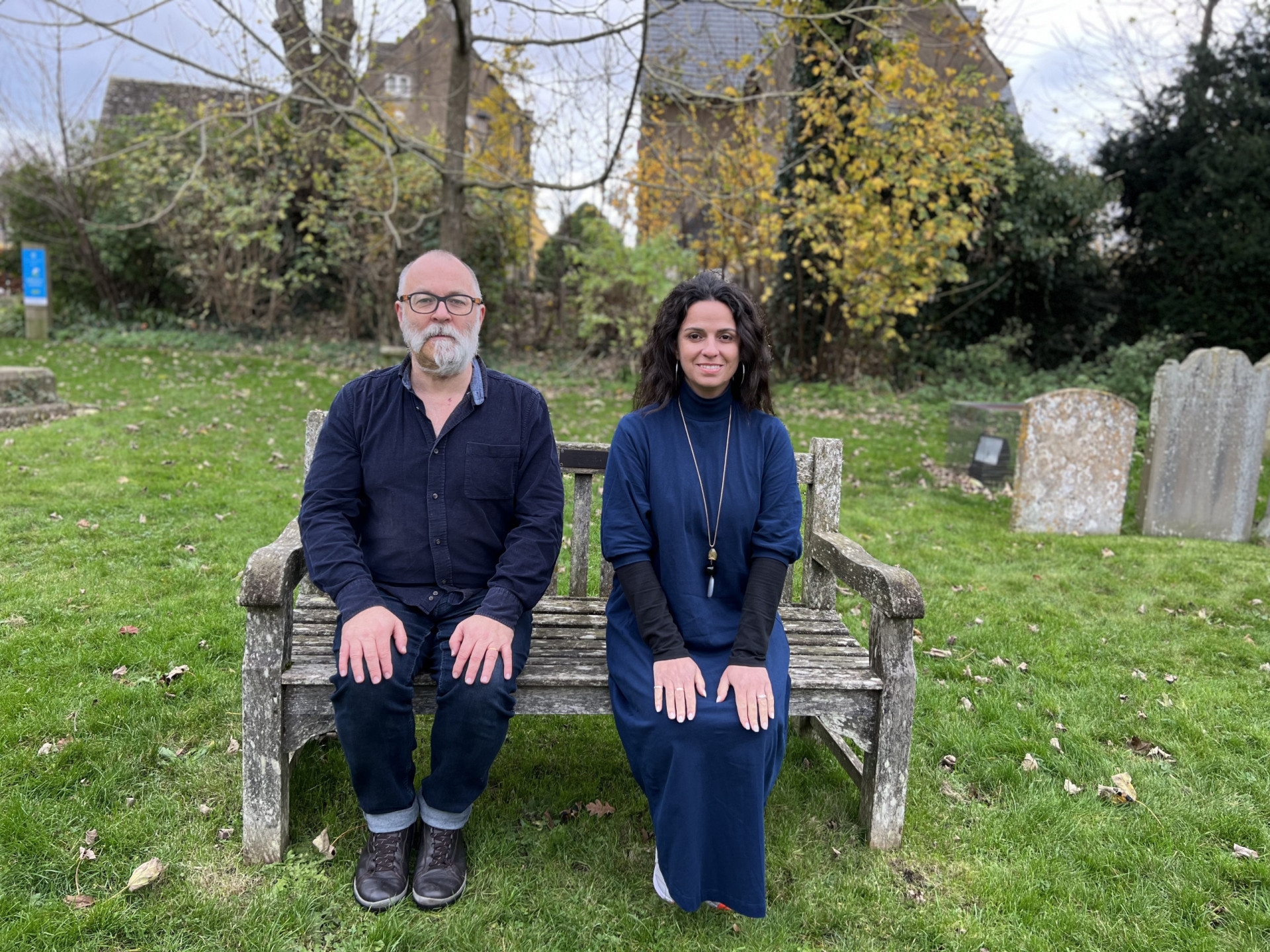
How did the idea for the song ‘Arde Sem Se Ver’ come about?
The song was initially called ‘Follow the Dove’. What we aimed to do was translate it into Portuguese – which is quite challenging to do perfectly from English to Portuguese. Jules Maxwell already had the song and lyrics done by him, but in Portuguese, the meaning wouldn’t make much sense to us. Amélia Muge came up with the idea to adapt it to the poem ‘Amor é fogo que arde sem se ver’, by Luís de Camões, given the desire from the previous album to do so. I crafted an entire album based on Camões’ poems and the fado.
This interesting adaptation emerged, which explores other spaces within the poem itself, giving it different meanings, different intensities, capturing the heartbeat’s sentiment and what emotions can be felt through this poem – which are a bit more sequenced, slightly easier to interpret. When there’s repetition, we’re more sensitive to that repetition, becoming more dependent on the phrase itself and the emotions that arise through that small, repeated phrase. It’s also a way to continue honoring our poet and his 500 years. It’s the first song on the album and, for me, it made perfect sense, considering I dedicated an entire album to Camões and fado.
This ‘Arde Sem Se Ver’ comes after releasing the theme ‘Não Deixei de Ser Quem Sou’ in collaboration with Jules Maxwell. Had you worked together before or was it a debut?
Jules Maxwell and Lisa Gerrard created an album called ‘Burn’ and presented it here in Portugal through the Guru agency. I had the opportunity to attend this concert and afterwards, I met both of them. ‘Terra Mãe’ ends up being a sequence of what Jules had previously done with Lisa Gerrard. He had a great interest in traditional Portuguese music.
He is also heavily influenced by the old style of Irish music – songs sung without any instrumentation, a cappella, which strongly resembles fado, especially the emotional state of fado. Hence Jules Maxwell’s interest in working with me on this project, showcasing his music to me and making adaptations to it – also through bases he sent me, creating new lyrics and melodies from those musical bases. That’s the work we did.
Is ‘Terra Mãe’ crafted by both of you?
Yes, entirely. Some songs already existed, others only had the melodic base. For instance, ‘Terra Mãe’ and ‘Réquiem’ are my creations. He sent me the music bases and I created the melody and lyrics – aligning with the theme being created, which was a reflection on the self. Ultimately, this is a bit of the album’s theme. ‘Não Deixei de Ser Quem Sou’, ‘Milagres’, even ‘Terra Mãe’, which connects with my roots, and I created these lyrics thinking about my parents’ village and my childhood. There’s also a spiritual state I feel this album has.
‘Réquiem’ reflects this, a Latin phrase I invented, which says ‘implet animum lumine solis’ (sunlight fills my soul). ‘Terra Mãe’ is a cleanse of bad vibrations and brings forth the necessary energy to live well or at peace with ourselves.
‘Entre Ser e o Estar’ is also another adaptation by Amélia Muge, becoming a reflection on the self. And hope, pondering our purpose here… For example, ‘Milagres’ is a song that tells us there are no miracles; we have to make them happen. Ultimately, this is the message of the album.
Fundamentally, ‘Terra Mãe’ also seeks the roots, which was what you wanted to combine…
Exactly! The roots from both Ireland and Portugal. Not just fado, but all roots. I am from Trás-os-Montes and have it deeply ingrained in me – what the roots are and what it means to be from a land, living in rural areas, the natural way of living, and even the poverty. They end up being very untouched areas. And this territorial ‘virginity’, which applies here to this ‘Terra Mãe’ and the ancient style of Irish music – which is virgin, completely without instrumentation, only voice and feeling, the melancholy. Even the word saudade has this aspect in ancient Irish music style… It’s not a fado album, far from it; they are influences.
There is no pure music. Fado itself has influences. I also don’t like to label and shelve music. We had quite a difficulty in determining what musical genre we would give this album
There are several artists, including fado singers, who have been working with fado influences while exploring other ‘worlds’ together. How do you see the evolution of fado in Portugal?
I feel I have been quite responsible for this new instrumentation, especially instrumentation in fado, and electronic music. In 2020, I released an album with Raül Refree with Amália’s traditional fados without Portuguese guitar, and then I began seeing my colleagues using exactly the same instruments, later on, in fado.
I feel happy because I feel part of this whole evolution process of fado. Tradition should always be maintained, as it is – guitar, viola, and voice. But evolution is important. We end up not forgetting the roots. We first have to see how it is so we can transform it.
Fortunately, there are purists, people reinventing, creating, and receiving new influences. This is very important. I believe there’s no pure music. Fado itself has influences. I also don’t like to label and shelve music. We had quite a difficulty in determining what musical genre we would give this album.
And nowadays, there’s much mixing of musical styles…
When we launch an album, we have to give it a musical genre. For me, it has been a bit difficult due to this sharing of influences and new sounds, new textures in the music I have been doing.
I don’t feel like a pop artist, I don’t feel like an artist for the masses. Thus, it becomes difficult because the big labels are for artists who are more pop, more popular
Speaking about Portugal, how do you perceive the pathway in music? Has the arrival of platforms made it easier to promote work, or has it brought a different challenge?
It’s quite important that we have this ease of releasing music and even making music at home. In the past, to make music, we had to go to a studio, and it was complicated. Nowadays, no, we already have all the means to make music. Even Billie Eilish makes an entire album at home.
It’s very important that we have these means of promoting, but it’s also important not to have only certain labels. For instance, I don’t have a label in Portugal; I had to look for one abroad.
Do you not have a label here, not by choice, but because you couldn’t find that partnership?
It’s complicated. I don’t feel like a pop artist, I don’t feel like an artist for the masses. Thus, it becomes difficult because the big labels are for artists who are more pop, more popular…
We consume the music we are given. I have nothing against pop music, but I am more into the wave of Ryuichi Sakamoto, Paul Buchanan, Glen Hansard
Do you feel the pressure for music to steer more towards a pop style, a more ‘commercial’ genre?
We always end up listening to the same styles, the same rhythms, and there’s so much good music we don’t know. We consume the music we are given. If we are exposed to other styles, other musical cultures, we realize there is music much better than what is currently consumed, which is very pop [commercial].
I have nothing against pop music, but I am more into the wave of Ryuichi Sakamoto, Paul Buchanan, Glen Hansard… I have a different musical taste and learned a lot with Raül Refree. He opened new ways for me to feel music and understand that the music we hear on the radio isn’t always the best. Therefore, it’s good that we can access platforms where people post the music they make and sometimes explore other musical styles that we resonate with. That is very important.

